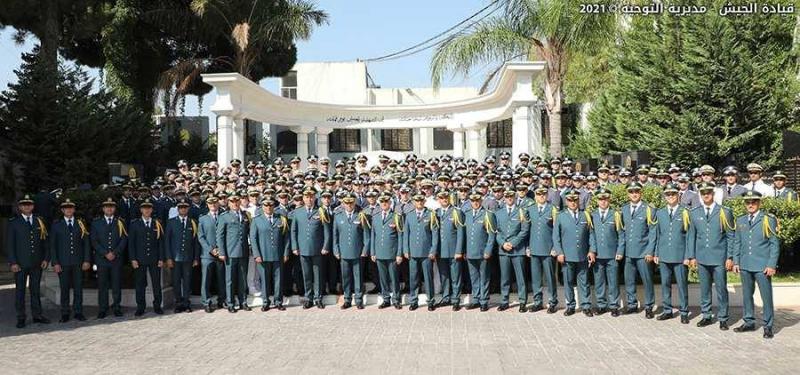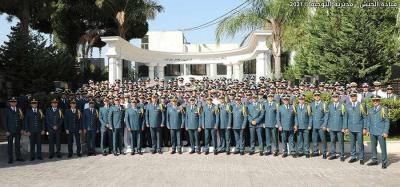In June, the "Democratic Gathering" submitted two urgent proposals for laws. The first seeks to amend articles 56 and 57 of Decree No. 102 (National Defense Law) concerning the automatic retirement of military personnel, extending their service by two years in all their positions, with automatic retirement at the end of this period, to be effective for only three years. The second proposal aims to amend Article 68 of Decree No. 112 (Public Employees System) to extend the retirement age for all employees to 68 years, adding four years.
If passed, this law would include military personnel such as Major General Amin Al-Aram, who is set to retire on December 24, Major General Milad Iskak and Major General Malik Shamss, both retiring in December and February 2023 respectively, the Chief of Judicial Police, Brigadier General Maher Halabi, retiring on November 19, and the Head of Gendarmerie, Brigadier General Marwan Sleilati, retiring in September 2023. It would also apply to the Head of the Military Office at the Ministry of Defense, Brigadier General Mansour Nabhan, the Deputy General Director of State Security, Brigadier General Hassan Shaqir, and the Deputy General Director of General Security, Brigadier General Elias Bissiri. Additionally, Army Commander General Joseph Aoun may also benefit since he is due to retire in January 2024.
On the civilian side, there are significant vacancies across various ministries and public institutions due to resignations, unpaid leave, and other reasons. Many are approaching retirement or have already been termed, with numerous vacant positions since there have been no appointments in the Council of Ministers. This includes the Director General of Investments at the Ministry of Energy and Water, Ghassan Nour El-Din, who is acting as Director General for Water Resources and Electricity, as well as the Chairman and Director General of the Beirut and Mount Lebanon Water Company, Engineer Jan Jibran, among many other vacant positions in the first, second, and third categories.
The law would also allow for a two-year extension for Major General Abbas Ibrahim, who is set to retire in March. After accepting his resignation and retiring on March 14, 2017, he was appointed in a civilian capacity according to employee regulations (64 years), which would permit his extension until March 2024. According to "International Information," there are 160 positions in the first category, 43 of which are vacant.
Despite the importance of the two proposals to avoid vacancies, they were not approved in the last session due to their absence from the agenda, and in the preceding session because the discussion and voting were halted early. However, Bilal Abdullah, a member of the "Democratic Gathering" and the author of the proposals, stated to "Al-Markaziah" that "we will speak with the Speaker of Parliament Nabih Berri and the Bureau of the Council to expedite the inclusion of the proposals on the agenda for the next legislative session. We will work to promote them due to their current importance."
Abdullah emphasized the significance of these proposals, noting that public administration is nearly empty and most positions are being held temporarily amidst the absence of appointments and government functionality, and due to the social situation where these employees previously received compensations and pensions that helped them maintain a dignified living. Many have children in university or loans; what is their fate today as compensations and salaries have completely eroded? Therefore, their continued presence in their positions serves as a type of social security for them, in addition to ensuring the continuity of institutional work and benefiting from their capabilities and expertise.
He pointed out that the same justification applies to military personnel, but requested a two-year extension for them to prevent affecting the hierarchy within military institutions, while advocating for four years for civilians. Abdullah concluded: "Unfortunately, the topic is addressed in the media as if this law was tailor-made for a specific person, though this is far from the truth. As the Democratic Gathering, when we presented it, we did so from a comprehensive national perspective, not an individual one. There are interpretations on this matter, and to be honest, what motivates me is the national principle first, and the citizens of my region, Iqlim al-Kharoub, secondly, since they are all public employees, both civilian and military. I witness their suffering daily and find an urgent necessity to pass the two proposals."




